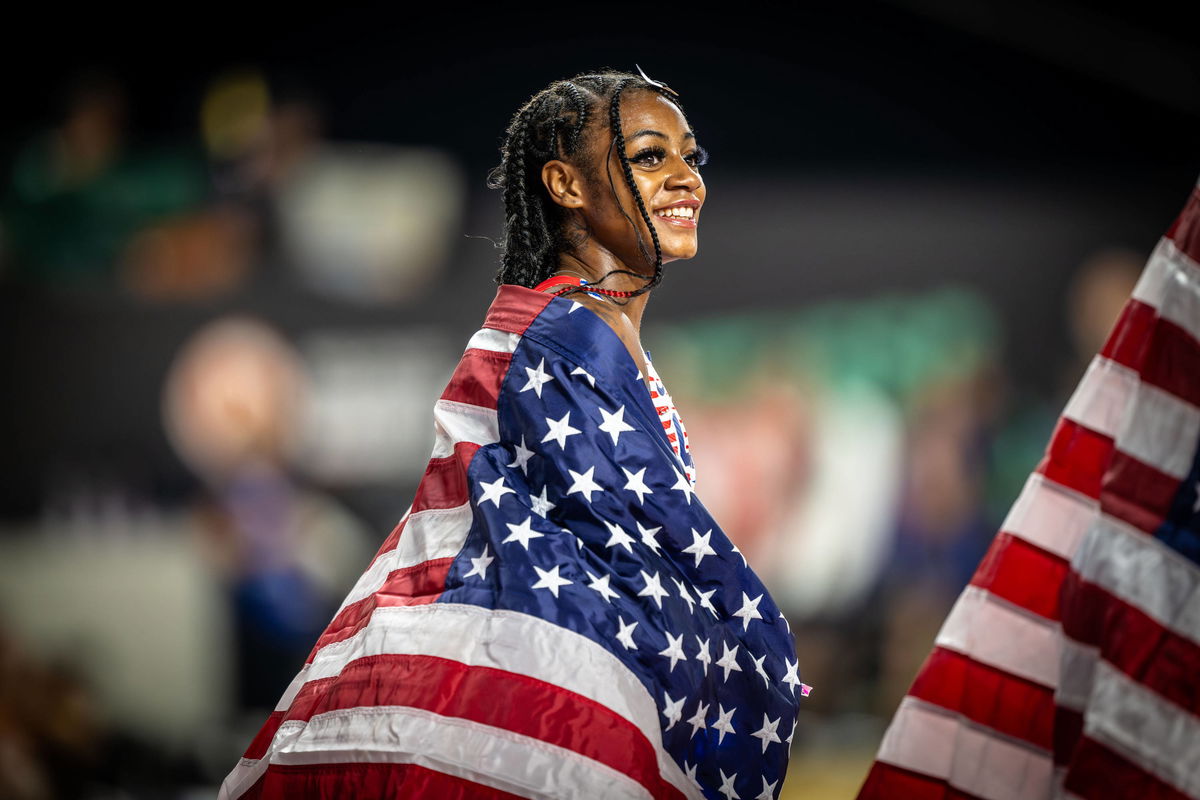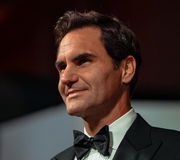
Imago
World Athletics Championships Budapest 23 Hungary, 26.08.2023 ShaCarri RICHARDSON of UNITED STATES USA at the World Athletics Championships Budapest 23 in Budapest, National Athletics Centre, on Saturday, 26. August 2023 *** World Athletics Championships Budapest 23 Hungary, 26 08 2023 ShaCarri RICHARDSON of UNITED STATES USA at the World Athletics Championships Budapest 23 in Budapest, National Athletics Centre, on Saturday, 26 August 2023 Copyright: xBEAUTIFULxSPORTS/TobiasxLacknerx

Imago
World Athletics Championships Budapest 23 Hungary, 26.08.2023 ShaCarri RICHARDSON of UNITED STATES USA at the World Athletics Championships Budapest 23 in Budapest, National Athletics Centre, on Saturday, 26. August 2023 *** World Athletics Championships Budapest 23 Hungary, 26 08 2023 ShaCarri RICHARDSON of UNITED STATES USA at the World Athletics Championships Budapest 23 in Budapest, National Athletics Centre, on Saturday, 26 August 2023 Copyright: xBEAUTIFULxSPORTS/TobiasxLacknerx
With just three days to go until the Tokyo World Championships, Team USA has already touched down in the Land of the Rising Sun, ready to chase as many medals as possible. Back home, the USATF has a special gift for its athletes. The voices of stars like Sha’Carri Richardson, Kenny Bednarek, Masai Russell, Anna Hall, and Vernon Norwood have finally been heard, as the USATF Foundation announced the 2025 class of Stephen A. Schwarzman Grant award winners. This year, a remarkable 100 track and field athletes will share a total of $3.65 million to support their training and competition expenses. Let’s dive into the full story.
Watch What’s Trending Now!
Celebrating two decades of empowering Olympic hopefuls, the USATF Foundation proudly announces the 2025 class of Stephen A. Schwarzman Grant recipients. This year, 65 athletes will receive $40,000 grants, while 35 others will be awarded $30,000—$10,000 more than last year. These grants are designed to cover critical needs, from training and travel to recovery, medical care, and living expenses, ensuring Team USA’s elite athletes are fully equipped to shine at the 2025 World Athletics Championships in Tokyo.
Talking about his philanthropy work, Schwarzman stated, “I’m honored to support these athletes in Tokyo and on the road to Los Angeles. “Their sacrifice and determination to represent our country on the world stage are inspiring and deserve our utmost respect.” Since its launch back in 2013, Stephen A. Schwarzman’s generosity has propelled some of Team USA’s brightest athletes toward greatness, helping many achieve Olympic and World Championship glory while setting American and world records.
ADVERTISEMENT
View this post on Instagram
This year’s grants celebrate a dynamic lineup of track, field, and road racing athletes, each representing the USA on the world stage. Among the notable recipients are Quanesha Burks, Grant Fisher, Vashti Cunningham, Elise Cranny, Masai Russell, Parker Wolfe, Caleb Dean, Sha’Carri Richardson, Kenny Bednarek and many more. Sharing his gratitude for receiving the award, Masai Russell stated, “I would like to extend heartfelt gratitude for receiving the Stephen A. Schwarzman Grant.”
She further addded, ” This generous support enables us to further our mission on and off the track, while empowering us to make a meaningful impact in our community. This means the world, and I would like to thank you, Mr. Schwarzman, and the team for making this possible!” Well, it’s good that athletes are finally getting their fair share of financial help, which they haven’t always received. Despite these efforts, many athletes still face financial challenges.
ADVERTISEMENT
Speaking out on the matter, Sha’Carri Richardson called out the USATF board for treating the athletes with a meager $8000 prize money compensation, “USATF Championship this weekend, first place only gets $8,000. What would y’all do if you decide to boycott because the disrespect is bold now?” Highlighting the issue, she added, “Then see us at meets and try to smile in our faces when half of the athletes you speak to are the same people y’all are hurting!!”
Pay has long been a pressing issue in track and field. Even at the prestigious Diamond League, winners earn just $10,000, with the finale offering a maximum of $30,000, far less than what athletes in other sports take home for similar sacrifices. Without sponsorships, many struggle to survive. And Sha’Carri Richardson isn’t the only one to raise her voice on this growing concern.
ADVERTISEMENT
Sha’Carri Richardson is not the only one on the quest
Olympic gold medalist Tara Davis-Woodhall has been vocal about the pay disparity in track and field, repeatedly calling out officials for the gap between athletes’ relentless dedication and their modest compensation. Together with her husband, Paralympic champion Hunter Woodhall, she has likened their earnings to “teacher salaries,” a comparison that highlights the financial strain many in the sport continue to face. “This sport is expensive. Why do we have to go all the way to Europe, spend all this money, and barely get a dime when we come to the States?” she questioned in 2024.
Similarly, Noah Lyles had also expressed his discontent about the financial realities of being a professional track and field athlete. In his candid interview, the Olympian revealed that without the sponsorships, he would even struggle to cover basic living expenses, “I won’t be able to pay my bills or you know go on through life easily, it will be a lot more challenging because unfortunately, we are an amateur sport, not a professional sport.” The athlete, even in his conversation, revealed that he would be happy if the conditions of the athletes changed before the upcoming LA 2028.
ADVERTISEMENT
“If I can change the sport before the LA 2028 Olympic Games, then I will have achieved my goal, and I will have transcended the sport. I would have made athletes make a living out of events and allowed people to choose if they wanted to go or not. We are amateur, we get paid but we have contractors,” said Lyles. Well, these insights just show us the broader issue of financial instability in track and field, underscoring the importance of initiatives like the Stephen A. Schwarzman Grant. Will the sport change?
Top Stories
Sean Payton Announces Retirement Plans as Broncos HC Demands Improvement From Bo Nix & Co. Before Playoffs

Greg Biffle’s $4M Worth Prized Possession Still Without a Buyer Leaves NASCAR Fans Heartbroken

LIV Golf Braces for Another Possible Exit in Wake of Brooks Koepka Departure

Biff Poggi All But Confirms Bryce Underwood’s Michigan Future After Announcing His Own Departure

Roger Federer Draws Criticism from Swiss Government Chief for Tourism Boom in Country

NASCAR World Mourns as Former Watkins Glen President Michael Printup Passes Away at 60

ADVERTISEMENT
ADVERTISEMENT
ADVERTISEMENT

